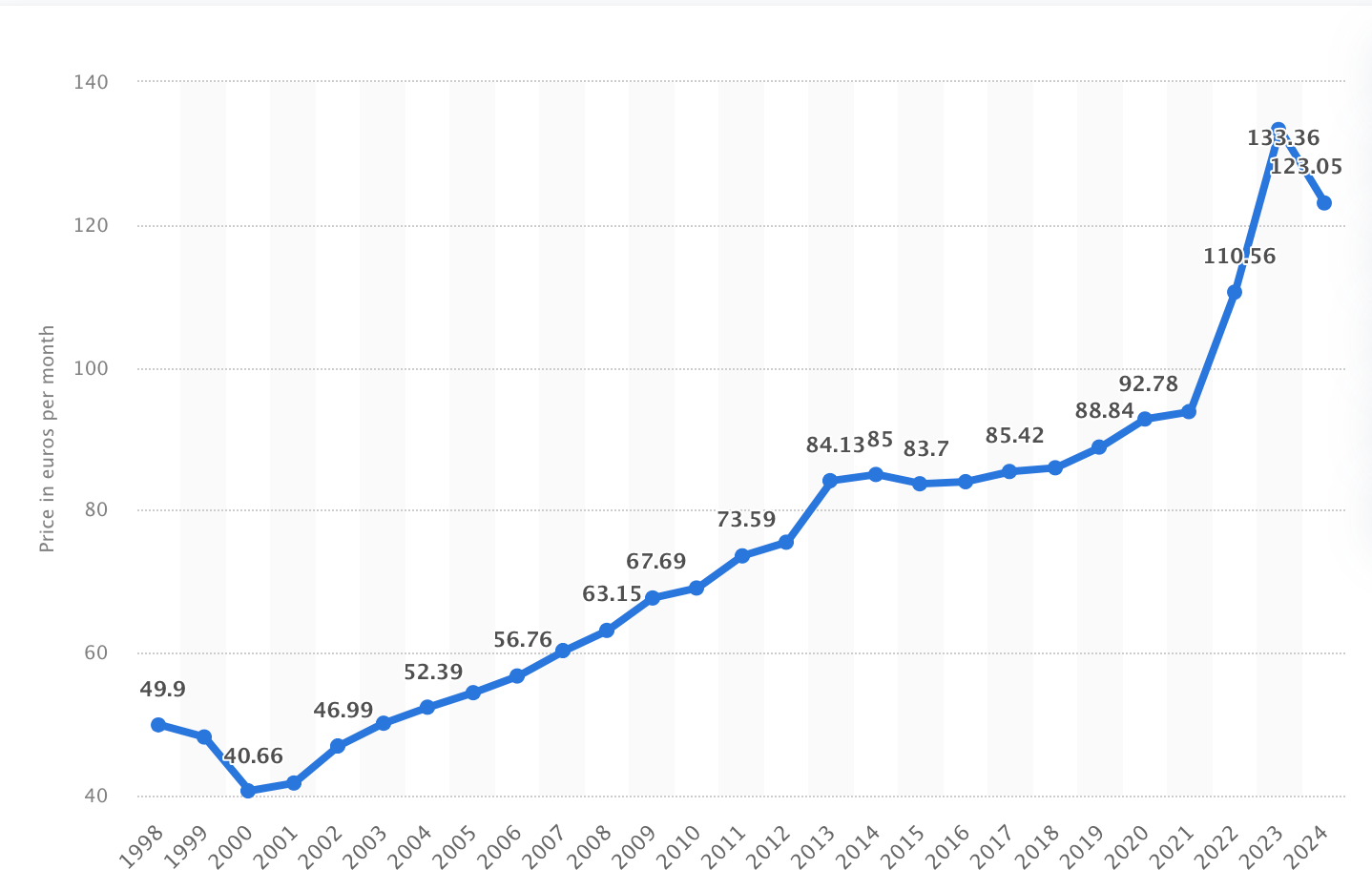Known as Germany’s transition of power “Energiewende”politics caused the country’s economy to weaken as a result of poor management of power politics.
The documents that led to the closure of Germany’s last nuclear power plant are frequently discussed today. Vice-Chancellor Robert Habeck and the Green Party convinced the public with documents arguing that nuclear power plants are not safe and their operating costs are high.
Germany had to reopen lignite coal power plants, one of the most polluting power sources, as a result of the closure of nuclear power plants and the significant decrease in natural gas imports from Russia.
Electricity Prices
Retail household electricity prices in Germany reached the highest level in the entire EU in 2023. This increase is interpreted as being directly linked to the combination of the closure of nuclear power plants and the natural gas crisis resulting from Russia’s attack on Ukraine.

Industry and Manufacturing
Germany’s economy will contract by 0.3% through 2023. Exports fell by 4.6% and imports fell by more than 12%. Consumer confidence remains at low levels.
There are significant declines in Germany’s production and construction sectors. (PMI) information shows that new orders have been decreasing continuously for 22 months. The construction industry is also shrinking in a similar way.
Graphic:Production Comparison of Germany Manufacturing Branch and Power Heavy Divisions

High power costs have caused Germany’s major companies to move some of their operations to overseas facilities. For example, companies such as BASF and Volkswagen turned to countries with cheaper power and labor costs.
Investments of German Companies in the USA
German companies are shifting record levels of capital to the United States due to their dissatisfaction with Germany’s worsening economic environment. In 2023, German companies invested $15.7 billion in the United States, compared to only $5.9 billion in 2022. The US accounted for 15% of Germany’s total capital commitments in 2023.
Volkswagen announced that it will establish a $2 billion production facility in South Carolina. Mercedes-Benz, on the other hand, established a battery facility in Alabama by investing more than 1 billion dollars.
US President Joe Biden’s Inflation Reduction Act has encouraged these investments by offering large incentives to foreign companies.
Trade Links and Protectionism with China
Germany’s increasing cooperation with the USA negatively affects its trade relations with China. Although China has been Germany’s largest trading partner for the last seven years, increasing protectionism and the trade war have made Germany’s import of cheap goods from China unattractive.
Germany’s capital commitments to the United States have exceeded investments in China for the past three years. According to research by the International Trade Council, this trend will lead to the USA replacing China as Germany’s largest trading partner by 2025.
Policies and History
Germany’s 2000 power law was introduced to subsidize wind and solar power companies. In 2010, under Angela Merkel’s leadership, the law was expanded and aimed to reduce greenhouse gas emissions by 40% by 2020.
Following the Fukushima disaster in 2011, Germany decided to close all nuclear power plants by 2022. This decision was one of the most important factors that led to the country’s power crisis.



